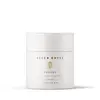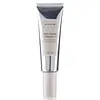What's inside
What's inside
 Key Ingredients
Key Ingredients

 Benefits
Benefits

 Concerns
Concerns

 Ingredients Side-by-side
Ingredients Side-by-side

Camellia Sinensis Leaf Extract
AntimicrobialJojoba Oil/Caprylic/Capric Triglyceride Esters
Skin ConditioningGlycerin
HumectantNiacinamide
SmoothingCamellia Oleifera Seed Oil
Skin ConditioningCetyl Alcohol
EmollientGlyceryl Stearate
EmollientPolyglyceryl-6 Palmitate/Succinate
EmulsifyingCetearyl Alcohol
EmollientSimmondsia Chinensis Seed Oil
EmollientLimnanthes Alba Seed Oil
Skin ConditioningPunica Granatum Seed Oil
EmollientPolyacrylate Crosspolymer-6
Emulsion StabilisingEthyl Ether
SolventEthylhexylglycerin
Skin ConditioningCamellia Sinensis Extract
AntioxidantLycium Barbarum Fruit Extract
AstringentTocopherol
AntioxidantSodium Hyaluronate
HumectantTetrasodium Glutamate Diacetate
Citrus Bergamia Peel Oil Expressed
PerfumingCitrus Aurantifolia Oil
CleansingOcimum Basilicum Oil
MaskingCamellia Sinensis Leaf Extract, Jojoba Oil/Caprylic/Capric Triglyceride Esters, Glycerin, Niacinamide, Camellia Oleifera Seed Oil, Cetyl Alcohol, Glyceryl Stearate, Polyglyceryl-6 Palmitate/Succinate, Cetearyl Alcohol, Simmondsia Chinensis Seed Oil, Limnanthes Alba Seed Oil, Punica Granatum Seed Oil, Polyacrylate Crosspolymer-6, Ethyl Ether, Ethylhexylglycerin, Camellia Sinensis Extract, Lycium Barbarum Fruit Extract, Tocopherol, Sodium Hyaluronate, Tetrasodium Glutamate Diacetate, Citrus Bergamia Peel Oil Expressed, Citrus Aurantifolia Oil, Ocimum Basilicum Oil
Water
Skin ConditioningGlycerin
HumectantDimethicone
EmollientSimmondsia Chinensis Seed Oil
EmollientSqualane
EmollientGlyceryl Stearate
EmollientCetyl Alcohol
EmollientNiacinamide
SmoothingStearyl Alcohol
EmollientPalmitoyl Tripeptide-5
Skin ConditioningPantolactone
HumectantPalmitoyl Tripeptide-1
Skin ConditioningPalmitoyl Tetrapeptide-7
Skin ConditioningHydrolyzed Plukenetia Volubilis Seed Extract
Emulsion StabilisingDunaliella Salina Extract
Skin ConditioningSodium Hyaluronate
Humectant3-O-Ethyl Ascorbic Acid
Skin ConditioningPanthenol
Skin ConditioningCaryodendron Orinocense Seed Oil
EmollientHonokiol
AntioxidantMagnolol
AntioxidantPalmitic Acid
EmollientSorbitan Oleate
EmulsifyingAluminum Starch Octenylsuccinate
AbsorbentHydroxyacetophenone
AntioxidantStearic Acid
CleansingAcrylamide/Sodium Acryloyldimethyltaurate Copolymer
Emulsion StabilisingPolyglyceryl-6 Laurate
Emulsifying1,2-Hexanediol
Skin ConditioningBoron Nitride
AbsorbentCaprylyl Glycol
EmollientPolyglyceryl-10 Oleate
Skin ConditioningIsohexadecane
EmollientButylene Glycol
HumectantChlorphenesin
AntimicrobialAcrylates/C10-30 Alkyl Acrylate Crosspolymer
Emulsion StabilisingTocopheryl Acetate
AntioxidantPolysorbate 80
EmulsifyingSorbitan Palmitate
EmulsifyingSodium Hydroxide
BufferingSodium Benzoate
MaskingCarbomer
Emulsion StabilisingSodium Lactate
BufferingPhenoxyethanol
PreservativePolysorbate 20
EmulsifyingCitric Acid
BufferingEthylhexylglycerin
Skin ConditioningPotassium Sorbate
PreservativeWater, Glycerin, Dimethicone, Simmondsia Chinensis Seed Oil, Squalane, Glyceryl Stearate, Cetyl Alcohol, Niacinamide, Stearyl Alcohol, Palmitoyl Tripeptide-5, Pantolactone, Palmitoyl Tripeptide-1, Palmitoyl Tetrapeptide-7, Hydrolyzed Plukenetia Volubilis Seed Extract, Dunaliella Salina Extract, Sodium Hyaluronate, 3-O-Ethyl Ascorbic Acid, Panthenol, Caryodendron Orinocense Seed Oil, Honokiol, Magnolol, Palmitic Acid, Sorbitan Oleate, Aluminum Starch Octenylsuccinate, Hydroxyacetophenone, Stearic Acid, Acrylamide/Sodium Acryloyldimethyltaurate Copolymer, Polyglyceryl-6 Laurate, 1,2-Hexanediol, Boron Nitride, Caprylyl Glycol, Polyglyceryl-10 Oleate, Isohexadecane, Butylene Glycol, Chlorphenesin, Acrylates/C10-30 Alkyl Acrylate Crosspolymer, Tocopheryl Acetate, Polysorbate 80, Sorbitan Palmitate, Sodium Hydroxide, Sodium Benzoate, Carbomer, Sodium Lactate, Phenoxyethanol, Polysorbate 20, Citric Acid, Ethylhexylglycerin, Potassium Sorbate
 Reviews
Reviews

Ingredients Explained
These ingredients are found in both products.
Ingredients higher up in an ingredient list are typically present in a larger amount.
Cetyl Alcohol is a fatty alcohol. Fatty Alcohols are most often used as an emollient or to thicken a product.
Its main roles are:
Though it has "alcohol" in the name, it is not related to denatured alcohol or ethyl alcohol.
The FDA allows products labeled "alcohol-free" to have fatty alcohols.
Learn more about Cetyl AlcoholEthylhexylglycerin (we can't pronounce this either) is commonly used as a preservative and skin softener. It is derived from glyceryl.
You might see Ethylhexylglycerin often paired with other preservatives such as phenoxyethanol. Ethylhexylglycerin has been found to increase the effectiveness of these other preservatives.
Glycerin is already naturally found in your skin. It helps moisturize and protect your skin.
A study from 2016 found glycerin to be more effective as a humectant than AHAs and hyaluronic acid.
As a humectant, it helps the skin stay hydrated by pulling moisture to your skin. The low molecular weight of glycerin allows it to pull moisture into the deeper layers of your skin.
Hydrated skin improves your skin barrier; Your skin barrier helps protect against irritants and bacteria.
Glycerin has also been found to have antimicrobial and antiviral properties. Due to these properties, glycerin is often used in wound and burn treatments.
In cosmetics, glycerin is usually derived from plants such as soybean or palm. However, it can also be sourced from animals, such as tallow or animal fat.
This ingredient is organic, colorless, odorless, and non-toxic.
Glycerin is the name for this ingredient in American English. British English uses Glycerol/Glycerine.
Learn more about GlycerinGlyceryl Stearate is a mix of glycerin and stearic acid.
It is used to stabilize the mixing of water and oil ingredients. By preventing these ingredients from separating, it can help elongate shelf life. It can also help thicken the product's texture.
As an emollient, it helps soften skin and supports barrier-replenishing ingredients.
In cosmetics, Glyceryl Stearate is often made from vegetable oils or synthetically produced.
This ingredient may not be fungal-acne safe
Fun fact: The human body also creates Glyceryl Stearate naturally.
Learn more about Glyceryl StearateNiacinamide is a multitasking form of vitamin B3 that strengthens the skin barrier, reduces pores and dark spots, regulates oil, and improves signs of aging.
And the best part? It's gentle and well-tolerated by most skin types, including sensitive and reactive skin.
You might have heard of "niacin flush", or the reddening of skin that causes itchiness. Niacinamide has not been found to cause this.
In very rare cases, some individuals may not be able to tolerate niacinamide at all or experience an allergic reaction to it.
If you are experiencing flaking, irritation, and dryness with this ingredient, be sure to double check all your products as this ingredient can be found in all categories of skincare.
When incorporating niacinamide into your routine, look out for concentration amounts. Typically, 5% niacinamide provides benefits such as fading dark spots. However, if you have sensitive skin, it is better to begin with a smaller concentration.
When you apply niacinamide to your skin, your body converts it into nicotinamide adenine dinucleotide (NAD). NAD is an essential coenzyme that is already found in your cells as "fuel" and powers countless biological processes.
In your skin, NAD helps repair cell damage, produce new healthy cells, support collagen production, strengthen the skin barrier, and fight environmental stressors (like UV and pollution).
Our natural NAD levels start to decline with age, leading to slower skin repair, visible aging, and a weaker skin barrier. By providing your skin niacinamide, you're recharging your skin's NAD levels. This leads to stronger, healthier, and younger looking skin.
Another name for vitamin B3 is nicotinamide. This vitamin is water-soluble and our bodies don't store it. We obtain Vitamin B3 from either food or skincare. Meat, fish, wheat, yeast, and leafy greens contain vitamin B3.
The type of niacinamide used in skincare is synthetically created.
Learn more about NiacinamideThis oil comes from the seeds of the desert shrub called Jojoba. It is more commonly known as jojoba oil, a non-comedogenic oil.
Jojoba oil does not contain fragrance and has many fatty-acids, making it a great soothing ingredient.
It also contains Vitamin E, a great moisturizing ingredient. Vitamin E is also an antioxidant and protects your skin against oxidative damage.
This ingredient humectant properties, meaning it helps draw moisture from the air. This helps keep your skin hydrated.
While jojoba has antibacterial properties, it is only able to kill some strains of bacteria.
Studies also show it helps in wound healing. In fact, Indigenous cultures have used jojoba as a moisturizer and to help treat burns for centuries.
Fun fact: Jojoba oil similar to natural human skin sebum, so it has a great effect on dry skin. It is also promising with helping to regulate sebum production.
Due to its fatty acid content, Jojoba oil may not be fungal acne safe. We recommend speaking with a professional if you have any concerns.
Learn more about Simmondsia Chinensis Seed OilSodium Hyaluronate is hyaluronic acid's salt form. It is commonly derived from the sodium salt of hyaluronic acid.
Like hyaluronic acid, it is great at holding water and acts as a humectant. This makes it a great skin hydrating ingredient.
Sodium Hyaluronate is naturally occurring in our bodies and is mostly found in eye fluid and joints.
These are some other common types of Hyaluronic Acid:
Learn more about Sodium Hyaluronate